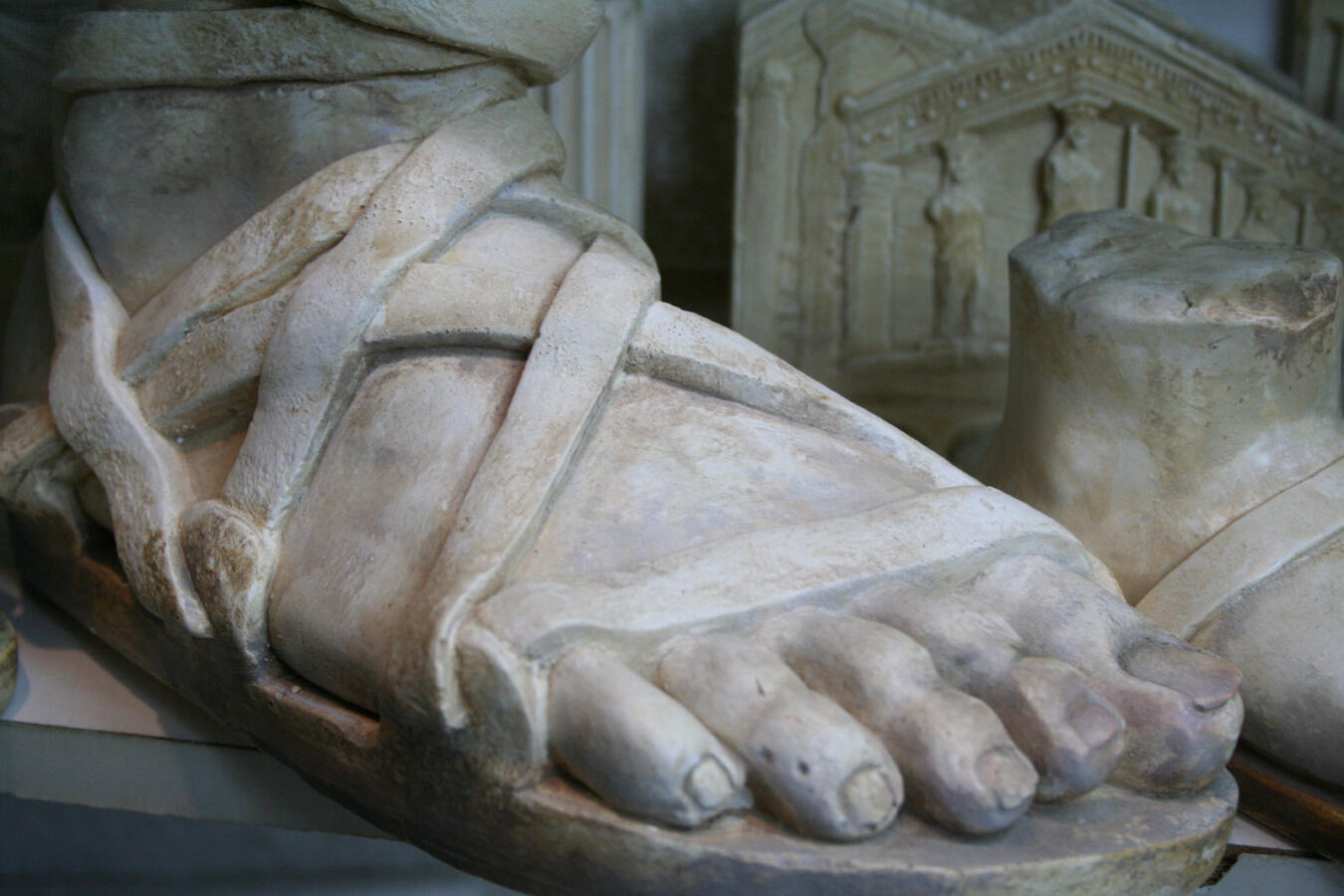Halitzah (pronounced chah-LEE-tzah) is a rarely performed ceremony by which the brother of a childless deceased man is released from the biblical obligation of marrying his late brother’s wife and carrying on the family line by having a child with her. The word itself is derived from the Hebrew root meaning “extract,” which refers to the removal of the surviving brother’s shoe as part of the ritual.
The source of this ritual is found in the Book of Deuteronomy, which states that if a man dies without having borne a child, his brother is obligated to marry his widow — a practice known as yibbum, or levirate marriage. If the man refuses, the obligation can be nullified through the ritual of halitzah. The basic outlines of this ritual is described in the biblical text:
But if that party does not want to take his brother’s widow, his brother’s widow shall appear before the elders in the gate and declare, “My husband’s brother refuses to establish a name in Israel for his brother; he will not perform the duty of a levir.”
The elders of his town shall then summon him and talk to him. If he insists, saying, “I do not want to take her,”
His brother’s widow shall go up to him in the presence of the elders, pull the sandal off his foot, spit in his face, and make this declaration: “Thus shall be done to the man who will not build up his brother’s house!”
And he shall go in Israel by the name of “the family of the unsandaled one.”
Deuteronomy 25:7-10
As described here, the ritual appears intended to publicly shame the recalcitrant brother, requiring the widow to spit on him and forever branding him as someone who declined to perform his duty by marrying his late brother’s wife. But the rabbis of the disagreed about whether such a marriage is actually the preferred outcome. One opinion suggests that since we can’t be sure that the surviving brother is marrying the childless widow for the sole purpose of fulfilling the biblical obligation — perhaps he is doing so because of his attraction to her or has some other motive — we prefer halitzah. (This is because a man is normally barred by religious law from marrying his brother’s former wife, so unless the motivation for the marriage is pure, the union might be considered an instance of a forbidden sexual relationship.) Other rabbinical authorities hold that yibbum is in fact the preferable outcome.
This divergence of opinion remained the case for much of Jewish history. Maimonides and Rabbi Yosef Karo (author of the Shulchan Aruch, the most important Jewish legal code) — both Sephardic religious authorities — seem to prefer yibbum, and indeed it was practiced historically in many Sephardic communities. Rabbi Moshe Isserles, a 16th-century Polish rabbi who wrote a commentary (or a gloss) on the Shulchan Aruch, preferred halitzah. As a result, Ashkenazi Jews rarely performed yibbum.

Help us keep Jewish knowledge accessible to millions of people around the world.
Your donation to My Jewish Learning fuels endless journeys of Jewish discovery. With your help, My Jewish Learning can continue to provide nonstop opportunities for learning, connection and growth.
In modern times, both communities have abandoned yibbum in favor of halitzah. In 1950, both Israeli chief rabbis, Sephardic and Ashkenazi, issued a ruling that yibbum should no longer be performed. But there were some holdouts — most famously Ovadia Yosef, Israel’s chief rabbi from 1973 to 1983, who argued that a Sephardic couple that wishes to perform yibbum should be allowed to do so. Israel outlawed polygamy in 1977, which made halitzah the only legal alternative in many cases.
While yibbum has virtually vanished today, some 15 to 20 halitzah ceremonies are reportedly performed in Israel every year. In cases where the deceased husband’s brother declines to perform halitzah, the widow can find herself in a situation similar to that of an agunah — a so-called “chained woman,” whose ex-husband refuses to grant her a religious writ of divorce, effectively denying her the possibility of remarrying. Except, in these cases, she’s chained to her brother-in-law. But such situations with halitzah are extremely rare.



